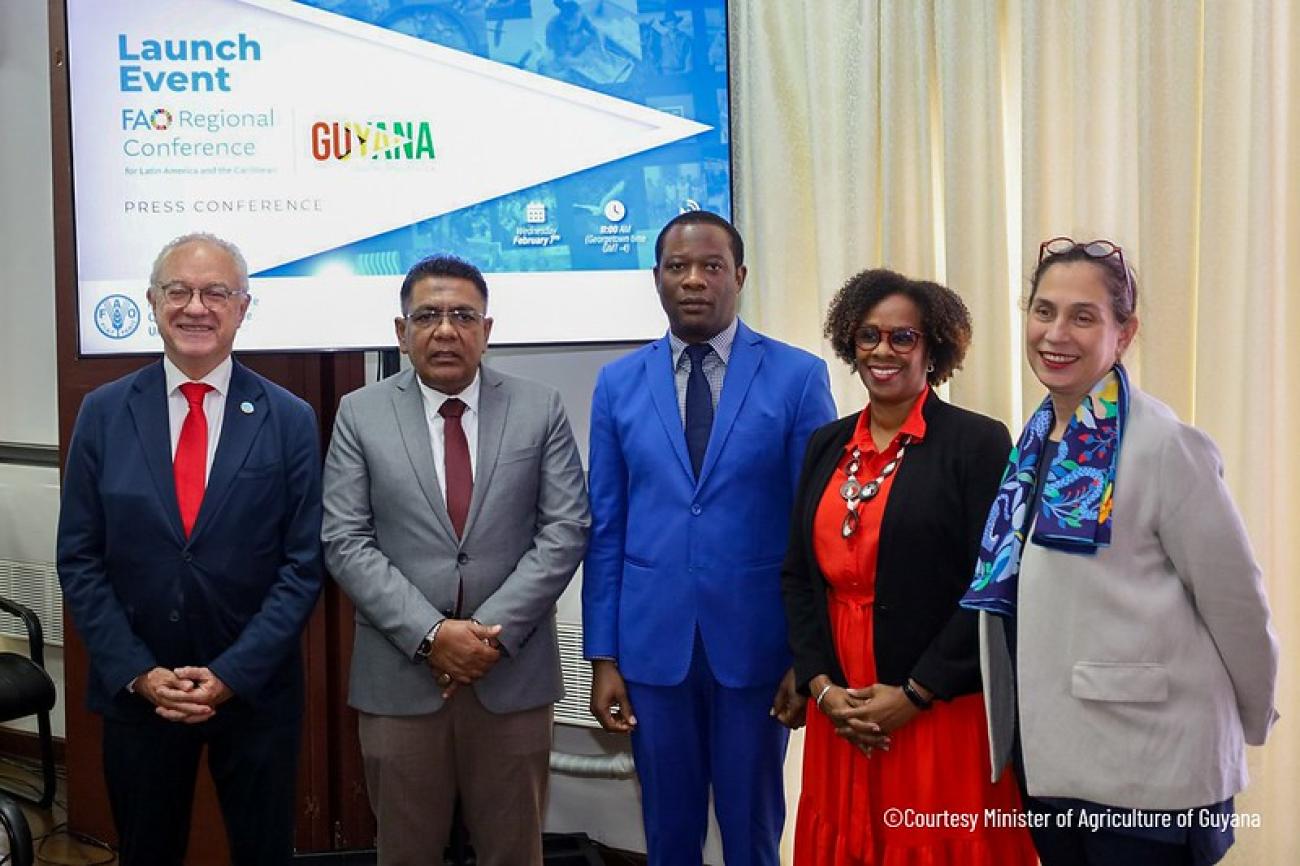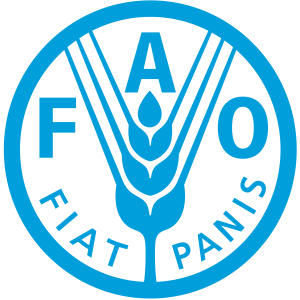The Minister of Agriculture, Zulfikar Mustapha, and the Minister of Foreign Affairs, Hugh Todd of Guyana, along with FAO Assistant Director-General and Regional Representative, Mario Lubetkin participated today in the official launch of the 38th FAO Regional Conference for Latin America and the Caribbean (LARC38).
The event was held at the Arthur Chung Conference Center in Georgetown, Guyana, which will host this important regional meeting of a UN agency in March this year.
During the launching event, the Minister of Agriculture, Hon. Zulfikar Mustapha, highlighted Guyana's commitment to hosting the FAO Regional Conference. "We had a meeting with His Excellency, Mohamed Irfaan Ali, the President of Guyana, and with the FAO Regional Representative, pointing out that at the end of this Conference, we must obtain concrete results and establish a program to which the region will commit in the next two years and into the future. This regional meeting will give us a perfect opportunity to face the challenges we face together related to agriculture and food."
For his part, the Minister of Foreign Affairs, Hon. Hugh Todd, assured that there is a need to prioritize the transformation of agri-food systems in Latin America and the Caribbean. “This was emphasized during the last FAO Regional Conference in Quito, and we are sure that the upcoming meeting in Guyana in March will emphasize the necessary steps to achieve this goal. At the policy level and among key interest groups, there is a need to harmonize efforts to benefit the people in the region. It is time to take this opportunity and make real progress towards transforming the agri-food systems.”
Mario Lubetkin, FAO Regional Representative in Latin America said: “Guyana will be the center of an important regional meeting where Heads of State and Government, Ministers of Agriculture and Ministers of other sectors, as well as non-governmental actors, will meet in a space for dialogue and technical and political discussion at the highest level on food and agriculture to analyze joint actions to ensure food security for the population, promoting better livelihoods and rural development, and contributing to the care and sustainable use of ecosystems on which food production depends”.
The Regional Conference is the highest regional governing body of FAO. There, the Member countries meet every two years and establish the regional priorities of the Organization for the following biennium.
It will be attended by H.E. Mohamed Irfaan Ali, the President of Guyana, Ministers, parliamentarians, and authorities of 33 region countries, the Director General of the FAO, QU Dongyu, international experts, members of the private sector, civil society, the United Nations system, and the academic world.
The region's fight against hunger
Latin America and the Caribbean is one of the few regions in the world that recorded progress in reducing hunger figures for 2021-2022, representing a decrease of 2.4 million in the number of people affected by hunger.
South America drove this decline but masks a notable increase in the number of undernourished in the Caribbean, from 14.7% in 2021 to 16.3% in 2022.
This session will take place in a Caribbean country, one of the sub-regions that share unique vulnerabilities: greater food security and nutrition challenges, limited arable agricultural land, and, in many cases, greater exposure to extreme weather events due to their geographic location.
During the launch event, authorities discussed the multiple efforts to transform agrifood systems in Latin America and the Caribbean, which have become a reference for other regions of the world.
Some actions to contribute to ensure food security and nutrition have been made through the region such as CARICOM 25 by 2025 initiative, SICA countries in the Central American Dry Corridor combating climate change's impact on food production, CELAC's new Food and Nutrition Security Plan 2024-2030, and other initiatives of the G20, MERCOSUR, CAN, the Summit of the Amazon countries etc.
The FAO Regional Conference will be an opportunity to reach more consensus and move forward in a coordinated manner, promoting actions and an open dialogue that articulates complementary capacities throughout Latin America and the Caribbean and support countries’ efforts to accelerate the 2030 Agenda for Sustainable Development.




